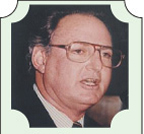By Tony Cozier
AFTER the West Indies were routed by an innings in less than three days in their two Tendulkar farewell Tests in India last November, Clive Lloyd said they “looked drunk” on an overindulgence of Twenty20 cricket.

“I personally believe that Twenty20 is something that brings people to the game, brings money to players and, if it’s doing that, then you have to stick with it. However, a diet of too much Twenty20 can be very harmful,” the West Indies captain through their supremacy in the 1980s told an Indian newspaper.
It is an addiction not easily overcome.
It has been intensified by the triumph in the World Twenty20 in Sri Lanka in 2012 that, in the words of the Trinidad Express, “lifted the spirit of the entire nation as one” and the rousing success of the first season of the franchise-based Caribbean Premier League (CPL) last year; not only were stadiums packed to capacity but research carried out by the University of the West Indies estimated that it generated US$105.6m overall for the relevant economies.
For all that, Lloyd’s point is that such a limited format, with bowlers restricted to four overs and victory potentially decided by a mini blitz by one batsman, was hardly proper preparation for five days of a Test.
He might also have added that the consequent absence of the leading players during the regional first-class season diminishes standards as well as leaving selectors in a quandary over how to properly judge performances.
The India Tests were preceded three months earlier by two Twenty20s against Pakistan and the CPL; the four West Indies’ innings lasted 78, 54.1, 55.2 and 47 overs. In the six that followed in New Zealand, only twice did they last more than 100 overs, beaten 2-0 in the series.
The next challenge is three Tests in the Caribbean in June and July against the newly revitalized New Zealanders. As their recent results at home indicate, especially their ascendancy over India, they present a markedly stronger examination under a new captain, Brendon McCullum, than when drubbed in both Tests, four of the five ODIs and both Twenty20s on their tour two years ago.
That assignment is still over three months away. The immediate West Indies’ attention is on defending their World Twenty20 title in Bangladesh. A loss to Ireland in the first of two such matches at Sabina Park a few weeks back was not an encouraging augury.
The return from injury of Twenty20’s most intimating batsman, Chris Gayle, raises hopes for something more convincing in three matches against England in Bridgetown that are the last before they get going in Bangladesh against India on March 23; the first is at Kensington Oval today.
Immediately that is over, six of those likely to figure against New Zealand – Chris Gayle, Darren Sammy, Dwayne Bravo, Sunil Narine, Ravi Rampaul and Jason Holder – move onto to the Indian Premier League (IPL), returning home a week before the Test series.
The effect of another Twenty20 binge will interest Lloyd and others who appreciate his concern.
Simultaneous with the World Twenty20 and the IPL, the regional first-class season once more continues with its major players on the other side of the planet.
Over the past two seasons, Gayle has played just two matches for Jamaica, Bravo three for Trinidad and Tobago. In 2013, Narine and Sammy appeared in one each for Trinidad and Tobago and the Windward Islands respectively. They are again likely to be absent throughout this year’s tournament.
In January, Gayle and Dwayne Bravo for the first time signed top-of-the-line yearly WICB contracts, each worth US$120,000. Others in the top ‘A’ category were Shivnarine Chanderpaul (who is also contracted to English county Derbyshire for 2014), Narine, Sammy and Marlon Samuels.
Kemar Roach, out of the game since last October with a shoulder injury, signed for US$80,000, Darren Bravo, Johnson Charles, Kirk Edwards, Kieran Powell, Denesh Ramdin, Rampaul and Shane Shillingford (presently suspended from bowling by the ICC for an illegal action) for US$60,000.
Unlike the Indian, Australian and English boards, the WICB doesn’t have the clout to insist that its contracted men forego overseas franchise leagues to participate in its domestic tournaments. The players themselves won’t refuse the lucrative deals offered that are negligible compared to what they are able to earn at home.
It is clearly a predicament but the West Indies Cricket Board (WICB) Its chief executive officer, Michael Muirhead, has hinted at a stronger stance on the issue in future.
He saw the acceptance of Gayle and Bravo as a sign of their “re commitment to West Indies cricket”.
“The fact they are presenting themselves, making themselves available at the expense of the other leagues, speaks for itself so I am happy about that,” he said. Yet both have been retained by their teams for the forthcoming IPL.
He revealed that the WICB is presently negotiating with the powerful West Indies Players Association (WIPA) over the issuing of the No Objection Certificate (NOC) when contracted players apply to be released for the IPL, the Big Bash and the other Twenty20 leagues mushrooming everywhere.
It is a problem that has ended up in court in the past. It is there again but, according to Muirhead, the two parties have been asked to resolve the issues themselves. He is hopeful, if not confident, that they will.
“For West Indies cricket to thrive and to grow they (the contracted players) have to make themselves available,” he said, stating the obvious. “At the same time, we don’t want to limit the amount or prevent their opportunities to earn.”
In other words, West Indies cricket finds itself between a rock and a hard place.




